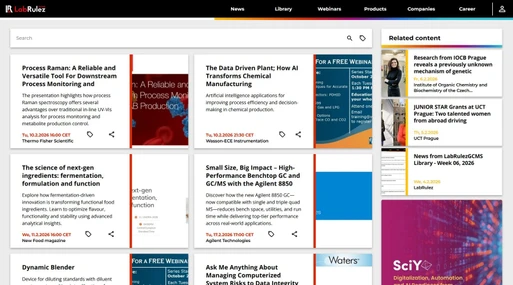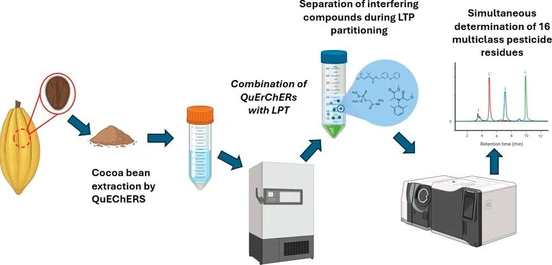Chromatographic and statistical approaches for GC×GC-MS data processing (John Moncur, MDCW 2025)

- Photo: MDCW: Chromatographic and statistical approaches for GC×GC-MS data processing (John Moncur, MDCW 2025)
- Video: LabRulez: John Moncur: Chromatographic and statistical approaches for GC×GC-MS data processing (MDCW 2025)
🎤 Presenter: John Moncur (SpectralWorks Ltd, Runcorn, United Kingdom)
💡 Book in your calendar: 17th Multidimensional Chromatography Workshop (MDCW) 13 - 15. January 2026
Abstract
Gas Chromatography coupled with Mass Spectrometry (GC-MS) is a powerful analytical technique for the separation and identification of complex mixtures. Two-dimensional Gas Chromatography coupled with Mass Spectrometry (GC×GC-MS) enhances the analytical capabilities providing superior separation and increased sensitivity. However, the vast amount of data generated by GC×GC-MS requires sophisticated data processing methods for meaningful interpretation.
The advantages of a combined chromatographic and statistical approach for GC×GC-MS data processing are presented. The chromatographic approach allows for improved peak resolution and better separation of co-eluting compounds. The use of multiple columns in GC×GC facilitates the separation of complex mixtures.
Statistical methods play a crucial role in data analysis. Multivariate statistical techniques, such as Principal Component Analysis (PCA), enable the extraction of relevant information from large datasets. These methods help identify patterns, outliers, and correlations, ultimately leading to a deeper understanding of the sample data.
The combination of chromatographic and statistical approaches enhances the reliability of data interpretation. This may reduce false positives/negatives and enhance the robustness data interpretation. This is particularly valuable in fields such as environmental monitoring, food analysis, and metabolomics, where complex sample matrices and trace-level compounds are common.
In conclusion, the integration of chromatographic and statistical approaches for GC×GC-MS data processing offers several benefits, including improved compound separation, enhanced data interpretation, and increased analytical reliability. This synergistic approach is essential for extracting meaningful insights from complex GC×GC-MS datasets, contributing to advancements in various scientific disciplines and applications.
-Workshop-LOGO_s.webp)



